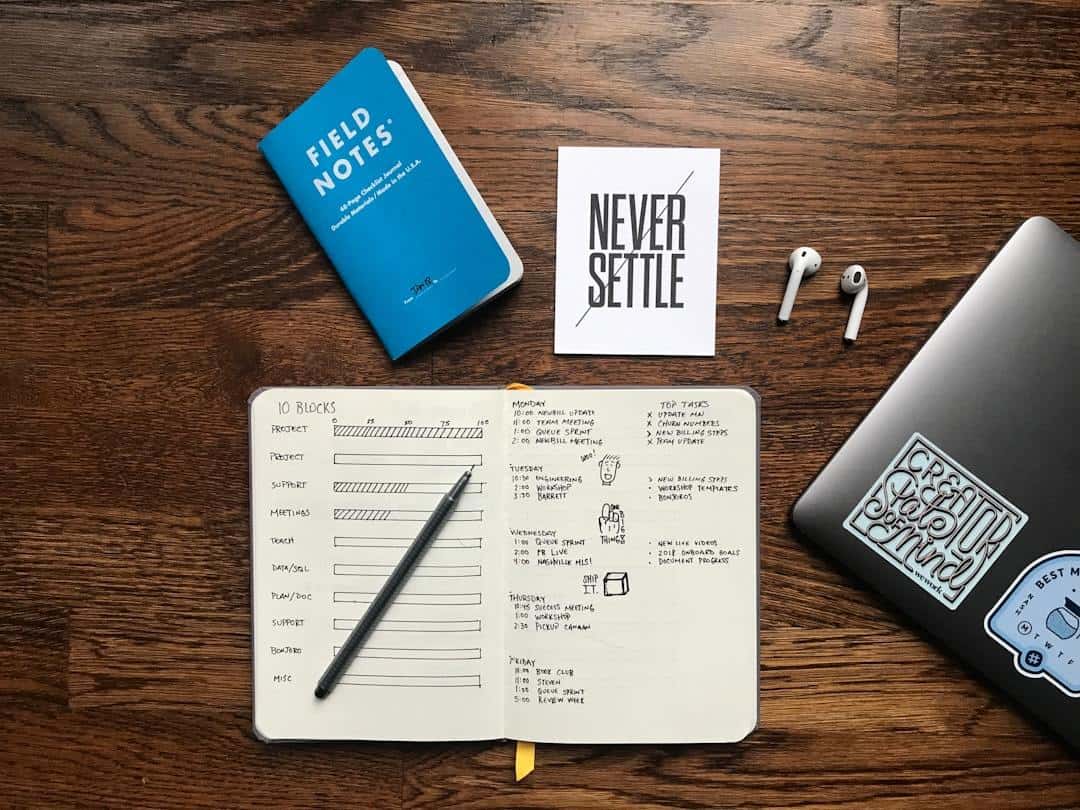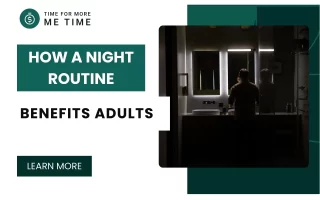You know the feeling—deadlines looming, a to-do list that’s longer than your arm, and distractions popping up left and right. We’ve all been there. But, you hear whispers about “productivity hacks.”
This mystical concept promises a way out of the chaos and a path toward a calmer, more accomplished you. Can a few simple productivity hacks actually make a difference in how much you achieve each day? It turns out, the answer is a resounding yes.
Incorporating smart strategies, fine-tuning your environment, and making conscious choices about your time can transform how you work. This allows you to tackle your to-do list with ease.
So buckle up – this isn’t about working harder, it’s about working smarter, and it’s all about unlocking those coveted productivity hacks.
Understanding Productivity
First things first, what exactly do we mean when we say “productivity”?
At its core, productivity is about achieving more with the resources you have, whether that’s time, energy, or focus. This might look different in various contexts – from churning out more deliverables during your work day to maximizing your free time for personal projects and relaxation.
Why Being Productive Matters
Productivity isn’t about pushing yourself to the limit or becoming a workaholic. Instead, it’s about finding a sustainable approach to work and life. You might be surprised to learn that since 1947, the U.S. business sector has seen a nine-fold increase in goods and services output.
However, this is seen with a proportionally smaller increase in hours worked.
This means it’s all about getting more done in less time.
By learning how to work smarter, not harder, you’re not just getting things crossed off your to-do list. You’re also making space for things you genuinely care about.
Whether it’s advancing in your career, making time for loved ones, pursuing hobbies, or simply having moments of peace, being productive lets you do more of what you love. It’s about creating a lifestyle where you’re less stressed and more fulfilled.
And who doesn’t like that, right?
When It Gets Tricky: Common Obstacles
However, I know you know where productivity goes astray. We all have those days (or weeks) when things just don’t seem to click. It could be a pile of emails hijacking your morning, a never-ending string of meetings, or simply feeling overwhelmed by the sheer volume of tasks in front of you.
Or in general, they are:
- Procrastination: That familiar voice tempting you with “I’ll do it later” can really put a dent in productivity.
- Distractions: Emails, phone calls, and notifications – the constant barrage of distractions can derail even the most focused among us. But whatever that was, you can minimize these distractions.
- Lack of clarity: Feeling scattered and uncertain about priorities can leave you feeling unproductive.
- Perfectionism: Striving for perfection can trap you in a cycle of re-working and refining, holding you back from moving on to other important things.
- Burnout: Ignoring your well-being and consistently pushing beyond your capacity will leave you depleted and far from your best.
Productivity Hacks You Need to Tackle Obstacles
With all those obstacles, how can we stay productive, you may ask? Well, I’ve compiled a list of productivity hacks that work for most people. Although some of these productivity hacks may not work for everybody, I know you’ll find one or two that will be suitable for your needs.
1. Mastering Your Morning
Like the start of a day, let’s start with morning routines. You’re no stranger to hearing about how important it is to have a morning routine. People swear by it, and books have been written on the topic.
Why does it get so much attention? It’s because starting your day strong sets the stage for focus, energy, and purpose. In short, how you start your morning can set the tone for your whole work day. Here are some of the morning habits that most successful people practice:
- Get Up Early: If the thought of being an early bird makes you cringe, stick with me. Studies show that waking up earlier has several productivity-related advantages. Some of these are clearer thinking and increased alertness. The world is also quieter in the mornings, which makes it prime time for distraction-free work. You may also find you get your best writing or work done when you wake up before everyone else.
- Get Moving: Yes, you read that right. Even I, as someone who prefers the comfy confines of their bed, have to admit how crucial movement is. Try to get some exercise in or just do some stretching because getting your blood flowing doesn’t just improve your physical health. Research indicates exercise actually fuels mental energy and enhances focus throughout your day.
- Get Fueled Up: We’ve all heard it since we were kids—breakfast is the most important meal of the day. There’s a reason for that, especially when it comes to productivity. Providing your body with a sustained release of energy will help you stay focused, sharp, and less prone to dips in energy throughout the morning.
2. Making Your Workspace a Productivity Haven
Imagine sitting down to work, feeling excited and prepared. But you find yourself in a sea of clutter – paper stacks competing with yesterday’s coffee mug. It doesn’t exactly set you up for a focused mindset, right?
Research confirms that a messy workspace competes for your attention. Clutter leads to less efficient brain processing, so you’ll find yourself more easily distracted and overwhelmed. Taking just five minutes a day to clean and organize can make a big difference.
That means doing these:
- Declutter and Organize: File things away, categorize papers, and create a clear inbox/outbox system.
- Utilize Ergonomic Furniture: Spending hours hunched over a laptop can really take a toll, impacting your energy levels. As a writer, I know firsthand that the physical discomforts of sitting for long stretches are real. That’s why we should prevent strain and discomfort, which can hinder us from staying focused on the task at hand since we’ll be battling our aching back.
- Have Proper Lighting and Surroundings: Ever feel like you get way more done in a sunlit café than at your home office desk? It’s about the environment. Ample natural light does wonders—sufficient lighting reduces eye strain. Thus, choose lighting that feels energizing, not draining.
3. Harnessing the Power of Tools and Tech
Productivity is about more than working in the right space – it’s about using the right tools. The right project management tools streamline your workflow and help you maximize efficiency. We’re not just talking about physical organizers, although those are super handy.
Here are some productivity tech essentials:
- Task Management Apps: Think productivity apps like Todoist and Trello for prioritizing, setting deadlines, and even collaborating with others on tasks.
- Digital Note-Taking Tools: Capturing those flashes of inspiration or jotting down crucial points from meetings: think apps like Evernote and Notion.
- Time Tracking Apps: Are you really using your time as effectively as you think you are, or are you wasting time? Toggl and RescueTime can give you concrete data about where your time is being spent, offering a clear picture of what your workflow actually looks like.
- Effective Communication Tools: These help cut down on endless emails. Slack and Microsoft Teams are great options for quick check-ins, project discussions, and streamlining communication within a team.
4. Choosing the Right Time Management Techniques
So, you’ve sorted your workspace, mastered the morning routine, and feel pretty confident, right? Well, here’s the hard truth – without proper time management techniques, even the most optimized setup can leave you feeling frustrated and unproductive.
Some of these time management techniques to maximize productivity are:
- The Pomodoro Method: Developed by Francesco Cirillo, this time management technique suggests working in short bursts, interspersed with equally brief breaks.
- The Eisenhower Matrix: If your to-do list feels way too long and overwhelming, this technique might help. The core concept? Split your to-do list into four quadrants based on whether tasks are urgent and important, not urgent but important, urgent but not important, or not urgent and not important. By using the matrix, you will become better at assessing urgent tasks.
- Time Blocking: Ever finish your day feeling like you spent your hours being “busy” but in reality, you have wasted time during your working day. The concept of time blocking addresses exactly that. This involves scheduling your entire day into blocks of time devoted to specific tasks.
These are just some of the time management techniques, and if you want to learn 21 more, check out our article about it. When you do, you’ll essentially be working with a roadmap each day.
5. Avoiding Multitasking
If multitasking is your go-to, prepare to be challenged. We tend to think of juggling tasks as efficient, even a skill. However, multitasking actually hinders productivity, increasing errors and decreasing output.
Why? When your focus is constantly being pulled in different directions, your brain struggles to properly engage with each task.
A 2009 Stanford University study sheds light on this very subject, suggesting that frequent multitaskers may have difficulty filtering irrelevant information. Basically, they struggle to focus on the important details at hand.
If the desire to multitask strikes, remind yourself that shifting your attention isn’t a good way to manage your time effectively. Instead, you’re dividing your cognitive resources and often end up not finishing anything from your long to-do lists.
Thus, it’s better to avoid multitasking and instead prioritize tasks one at a time. It’s not a waste of time, but working on a single task until completion is one of the most powerful productivity tips I can recommend.
6. Boosting Focus and Concentration
Staying focused on one task at a time might sound easier than it actually is. So, how do you train your brain to shut out those nagging distractions and tap into true focus? There are some effective and simple strategies for training your attention and boosting productivity.
Embracing Quiet Time
Meditation and mindfulness aren’t just about zen vibes – although they’re excellent for that, too. They actually boost productivity by enhancing focus and promoting a calm, centered mindset. Studies suggest that even a few minutes of mindfulness meditation can dramatically enhance attention span.
It can help calm your thoughts and clear your head, making a big difference in your overall productivity and mindset throughout the day. It allows you to approach tasks with greater clarity and less mental chatter.
Eliminate Distractions
Staying focused is one of the key pillars of productivity. As we know, our tech world throws constant distractions our way—check emails or social media notifications. If possible, keep your phone out of sight during your most productive work times.
Disabling distracting alerts on all devices and finding ways to minimize external interruptions (a closed-door policy when you really need to focus, for example) at specific times is also a good idea.
Do The Deep Work
Imagine tapping into a state of hyper-focus, achieving those flow-like moments where distractions simply fade away. This isn’t just for monks or those “naturally focused” individuals.
Cal Newport’s book Deep Work discusses this as a skill you can hone to dramatically boost your productivity and quality of work output. It’s about setting aside a specific time of uninterrupted chunks of time dedicated to your most demanding cognitive tasks.
This could look like designating distraction-free blocks on your calendar for deep work sessions. You could also try finding environments that naturally promote deep focus (a library, coffee shop, or a quiet corner at your home office, for example).
Try different strategies until you find what unlocks this state for you. Your ability to get deep work done can vary from day to day and is super influenced by your surroundings, energy levels, and the task you’re tackling, so experiment with what works best.
Take a Break
Don’t underestimate the power of short, intentional breaks. Think about the Pomodoro technique. As tempting as it may be to plow through a task for hours on end, studies show those regular pauses can make all the difference when you are trying to avoid burnout.
Short breaks throughout the workday refresh your mind, replenish focus, and combat mental fatigue, keeping those productivity levels consistently high. Even if it’s a quick stretch or stepping outside, short pauses are key.
7. Creating Healthy Habits
Optimizing your workflow, creating an inspiring work environment, and mastering those time management strategies will propel you towards greater productivity.
However, you shouldn’t forget one of the best productivity hacks that you can’t live without is to build healthy habits that fuel your body and mind. And they are:
Prioritize Sleep
It’s one thing to plan your day strategically and another to operate on half-charged batteries. The impact of quality sleep on our productivity cannot be overstated. It promotes attention, focus, and even that flash of brilliance we all hope for—creativity.
If your workday feels more like dragging your brain through mud than firing on all cylinders, maybe it’s time to make a radical change in the bedroom. Prioritizing those restful, quality sleep hours might be one of the biggest and simplest productivity hacks you need.
Eat Healthy
Ever notice how a lunch laden with carbs seems to send your brain straight into nap mode? Yeah, I’ve been there. It turns out there’s science behind this.
The foods we fuel our body with directly impact how much energy we have and how well we can focus. Thus, aim to stay hydrated, consuming plenty of water and choosing foods with lasting energy.
While those chips might be tempting, focus on nutrient-rich options like lean proteins, complex carbohydrates (whole grains are a lifesaver), healthy fats, and an array of colorful fruits and vegetables.
You might even try incorporating some brain-boosting power snacks—think berries, nuts, dark chocolate, or green smoothies. That way, eating nutritious food and drinking water doesn’t have to be bland.
Be Active
While morning exercises are great, you can also choose other times to become active. And when we say staying active, we don’t mean becoming marathon runners or gym fanatics.
The CDC recommends aiming for 30 minutes of moderate-intensity activity, five days a week. But this doesn’t mean you have to train for a marathon. It doesn’t have to be overly intense or consume hours of your day to make it incredibly worthwhile.
A brisk walk, an energizing dance class, a bike ride, or any movement you make regularly is enough.
That’s because movement and exercise have far-reaching benefits beyond simply feeling fitter—their impact on mental clarity, sustained energy, and boosting your mood will significantly impact how well you tackle tasks throughout the day.
Don’t Forget Your Mental Health

Besides making our bodies healthy, we should also focus on our mental health. Mental well-being is often the missing ingredient in many people’s productivity quests.
Prolonged stress, feelings of overwhelm, and failure to address anxieties impact our capacity to work effectively. Learning stress management techniques like meditation or mindfulness or incorporating relaxing rituals into your daily routine is essential for sustained productivity.
Sometimes, seeking guidance or support from mental health professionals or supportive communities can make a world of difference. It’s a huge factor and not something to underestimate.
FAQs
What are the top productivity hacks?
Some of the most popular productivity hacks are:
- Eliminating distractions by using website and app blockers or utilizing noise canceling headphones.
- Focusing on one task at a time.
- Building healthy habits by ensuring a proper sleep, exercise, nutrition, and hydration routine.
What is the ultimate productivity hack?
The ultimate productivity hack is finding the most optimal set of strategies, tools, and habits that work best for your individual needs. It involves learning to manage your time effectively and to maximize your efforts to help you achieve peak performance without sacrificing your well-being.
What is the 1 3 5 rule of productivity?
The 1 3 5 rule is a time management system based on achieving one main task per day, three medium tasks, and five smaller tasks.
What is the 333 rule for productivity?
The 333 rule is designed to deal with feeling overwhelmed.
First, ask yourself, “What are three things I can do right now to make today better?” Then, think about what three things can improve your week. Finally, “What are three things that could make my life better over the next year?”
Conclusion
Ultimately, there’s an incredible array of productivity hacks out there. From tools, strategies, and resources, we can maximize our output.
Remember, effective productivity hacks involve far more than to-do lists or achieving one single goal. They also include honing effective time management skills, prioritizing self-care and well-being, and creating an environment for focused success.
All of these can contribute to helping us stay productive. Try them out now, and see what works best for you.






